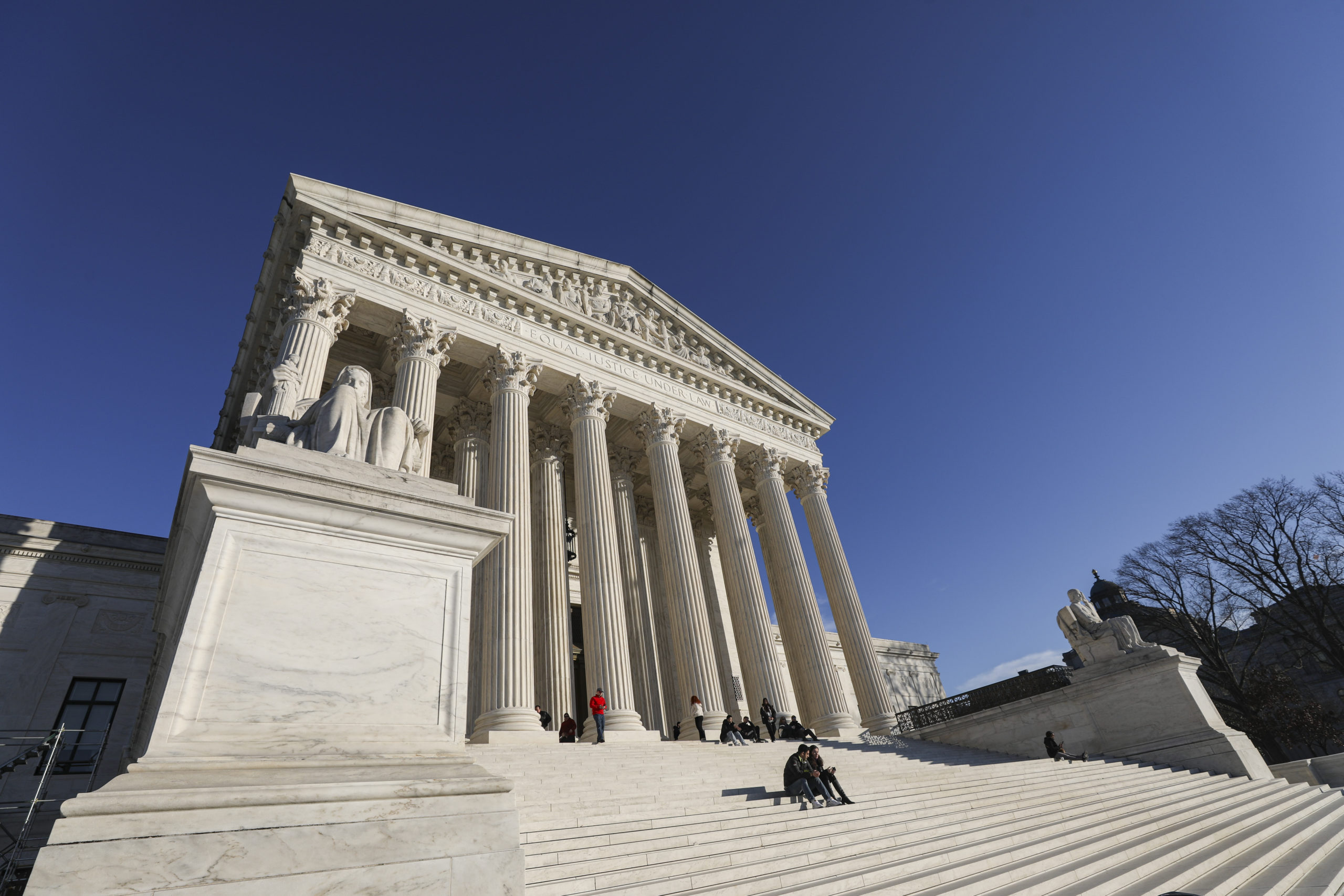In 1963, the Supreme Court held that the Constitution guarantees that poor criminal defendants facing the possibility of prison have the right to a free defense lawyer. What’s less clear is how competent that lawyer’s work has to be to satisfy that guarantee—or whether, as in the case of Clinton Folks, that lawyer has to even show up. Last week, the U.S. Supreme Court delivered its answer: Not necessarily.
On the evening of July 22, 2007, Clinton Folkes arrived at a park in downtown Columbia, South Carolina, where he found Tiffany Briggs, his ex-girlfriend as of five days prior, chatting with Karem Jones, whom Folkes knew from work. Folkes walked up to Jones, threatening to “fuck [him] up,” and then punched him in the eye. (The prosecutor claimed Folkes was drunk; Folkes denied it.) Jones punched him back, and they both fell to the ground, tussling. That’s when Folkes pulled a knife on Jones and said, “I’m going to fucking kill you.” Folkes cut Jones’s neck and caused him to start bleeding. An ambulance took Jones to a nearby hospital, where he was admitted and treated for his wounds.
Police arrested Folkes, and the prosecutor charged him with assault and battery with intent to kill, a crime that usually carries a maximum sentence of 20 years. But South Carolina’s “three strikes” law requires a mandatory life sentence for people with two or more convictions of a wide-ranging list of crimes, from murder to insurance fraud. One triggering crime is the same one with which Folkes had been charged—assault and battery with intent to kill. And Folkes had been convicted of this crime twice before, in 1994, which meant that this time, he was looking at the possibility of spending the rest of his life behind bars.
At trial, Folkes’ lawyer tried to convince the jury that he was guilty of a less serious offense—”assault of a high and aggravated nature”—which wouldn’t trigger the three strikes law. The judge, however, incorrectly told the jury that they would have to find that Folkes acted without “malice” in order to convict him of that lesser offense. (His lawyer objected to these jury instructions, to no avail.) Based on the judge’s instructions, the jury found him guilty of the more serious offense, and the judge sentenced him to life in prison.
Because Folkes wanted to appeal his sentence on the grounds that the judge gave faulty jury instructions, the court appointed Celia Robinson, a lawyer from South Carolina’s Indigent Defense Commission, the state’s public defender office, to represent him. Ten days before the intermediate appeals court issued its opinion in Folkes’s case, however, Robinson quit her job without notifying Folkes or the court. Four days after the appeals court ruled—it issued a one-paragraph decision denying his claim—Folkes received a letter on official Commission letterhead, apparently signed by Robinson, claiming he had no other state court appeal options available to him. Folkes, believing himself out of options, dropped it.
The problem was that Robinson’s letter was wrong; he could still appeal to the South Carolina Supreme Court. Another problem was that Robinson’s letter was not Robinson’s letter at all. In the messy aftermath of her departure, an office paralegal apparently sent Folkes the incorrect form letter and forged her signature on it. Robinson would later testify that, if she had stayed at the Commission, she would “certainly” have filed an appeal to the state supreme court in Folkes’s case, because she thought the claim “was a winner.”
Typically, the right to counsel for criminal defendants extends to their first “appeal of right”—appeals that the higher court is legally required to hear. (In a 1963 case, the Court held that “where the merits of the one and only appeal an indigent has as of right are decided without benefit of counsel, we think an unconstitutional line has been drawn between rich and poor.”) This means Folks was entitled to a defense lawyer who would have presented his appeal to the state supreme court—or, at the very least, who would have explained the outcome of his first appeal and his option to try again.

(Photo by Celal Gunes/Anadolu Agency via Getty Images)
In 2019, Folkes brought a habeas petition before a federal judge, essentially challenging his conviction as wrongful. There, he argued that he’d been denied effective assistance of counsel when his lawyer abandoned his appeal without notice, and asked for either his release from custody or the chance to finally present his case to the state supreme court.
A three-judge panel of the Fourth Circuit Court of Appeals, however, took a much more limited view of the law, holding that Folkes’s constitutional right to counsel ended when he received that initial decision from the state intermediate court. Last week, the U.S. Supreme Court agreed, denying Folkes’s petition for certiorari without comment.
At the Fourth Circuit, Judge James Wynn dissented, focusing on its cramped reading of a public defender’s obligations to their clients. “What sense does it make to equip an indigent defendant with counsel, who zealously pursues an appeal, only to leave him in the dark about the outcome?” he wrote. “The constitutional right to appellate counsel must cover more than merely filing the briefs and allowing counsel to depart without a word.”
The majority opinion, Wynn concluded, “essentially allows counsel to hurl his client overboard before reaching the safety of the docks.”
In recent years, the Court has issued a number of decisions hollowing out the right to counsel. Last term in Shinn v. Martinez Ramirez, for example, the Court held that defendants can’t present new evidence of their post-conviction lawyer’s ineffectiveness when asking for a new hearing or resentencing on the basis of that ineffectiveness. Also last year, the Court ignored Terence Andrus’s request that the Court force a Texas state court to take seriously his ineffective assistance of counsel claim, even though the justices had previously found that Andrus’s lawyer was constitutionally defective and ordered the state court to take action. Justice Sonia Sotomayor, joined by Justices Stephen Breyer and Elena Kagan, dissented, saying that Andrus’s case “cries out for intervention.”
By affirming the Fourth Circuit in Clinton Folkes’s case, the Court has weakened the meaning of the right to criminal defense counsel even further, allowing attorneys to ghost their clients without consequence. And Clinton Folkes will spend the rest of his life in prison, unable to vindicate the fundamental rights the Supreme Court is supposed to protect.

